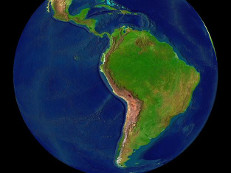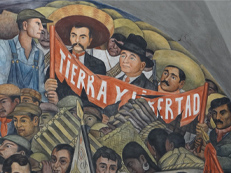*Because of my love of economics and math, I like to name things arbitrarily to maximize clarity. In this blog post, I will label the video on Marti as A and the video on the uncertain future of Latin America as B*
In this week’s videos, I was particularly moved by two subject matters. Namely, I enjoyed the videos labeled as “Marti and Cuba” (A) and “Towards an Uncertain Future” (B). I think these two videos work perfectly with each other because of my belief that Latin America needs influential leaders such as Marti to cause a change in these uncertain times.
Let’s analyze the first video, A. In A, I was moved by the allusions to my geographical Caribbean partner, Cuba and its patriotic icon, Jose Marti. Jose Marti, venerated as the father of Cuban independence, is one of Latin America’s most famous leaders. He lived in exile in New York, earning his living as a foreign correspondent. Throughout the 1880s and early 1890s, it was through Marti’s gaze that Latin Americans were able to see and understand the United States. In essence, he was one of the gatekeepers between the New World (the economic powerhouse of the US) and Old World (the economically developing Cuba).
Then, in the second video, B, I enjoyed the economic data they provided about the history of Latin America. Particularly, the way the footage analyzed the critical question of “How in fact do you reform institutions with long histories of corruption and mismanagement?” was awe-inspiring. It reminded me of the striking finding in a World Bank study called Understanding the Income and Efficiency Gap in Latin America and the Caribbean. Here, economists try to pin numbers into the fact that Countries in Latin America and the Caribbean could have been twice as productive, had they enjoyed the same level of efficiency in the capital and labor use as in the US. In this study, they conclude that a possible answer to the regions efficiency gap is that the region’s workers produce on average just a fifth of the output of a US worker.
So, how do these videos/studies relate to each other? I think that they meet in the intersection of economics and culture: we need more capable leaders in Latin America. Learning from Marti, and having a comprehensive view on the uncertainty in Latin America, is essential to cause a change in this troubled region. The members of the diaspora are imperative to cause economic well-being.




